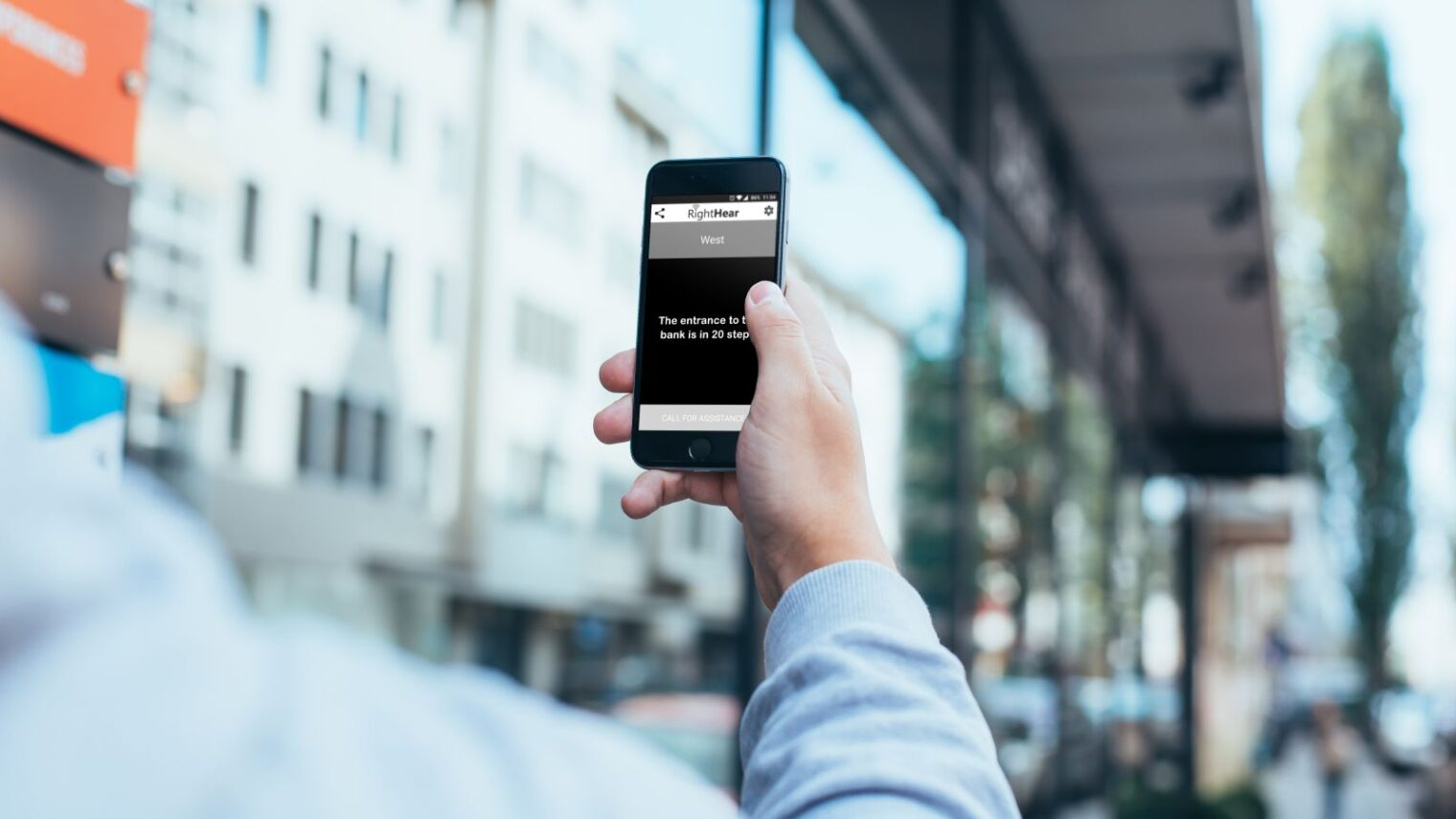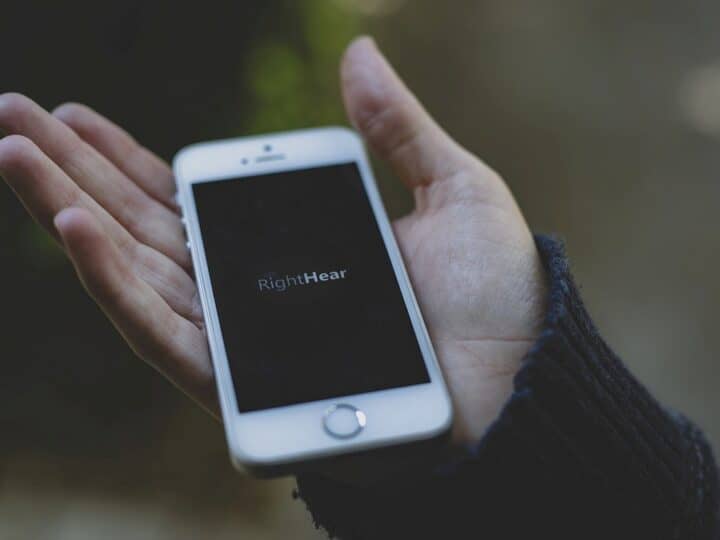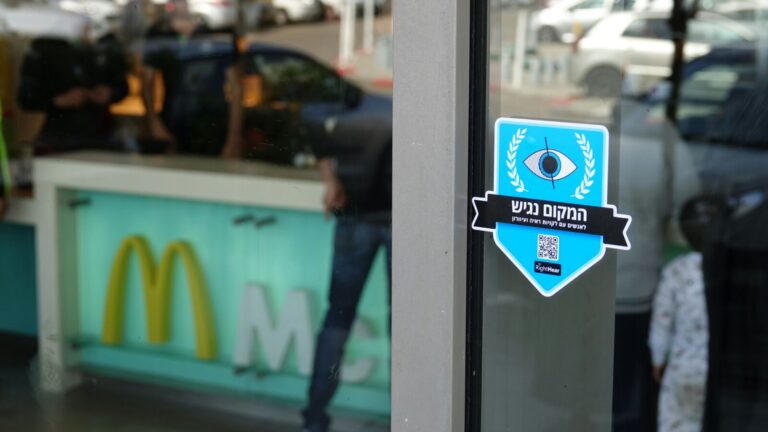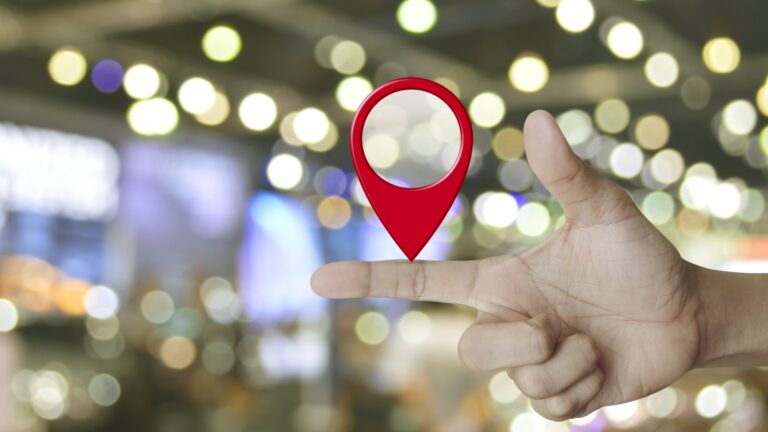Idan Meir thought he was building a technology to help stores sell more goods. He wound up with a product that allows blind and visually impaired people to navigate malls, universities and hospitals.
“It happened almost by accident,” Meir says, explaining the genesis for RightHear, the pioneering accessibility app he built with cofounder and CTO Gil Elgrably.
The two had created a technology to offer virtual on-the-spot coupons to shoppers based on Apple’s iBeacon technology. iBeacons are small self-powered Bluetooth transmitters that can be placed on walls and roofs in a retail location. But the business model wasn’t making sense.
“We needed to build a very large user base for this to work,” Meir tells ISRAEL21c, and that was turning into a very large challenge.
Then, during a 24-hour hackathon sponsored by the Ra’anana municipality, the Tel Aviv suburb in which RightHear is based, Meir and Elgrably had an insight. Rather than marketing the app to end users, what if they pitched it to the venues as a way of making their space accessible to people with visual impairment?
It was just a hunch. “We didn’t even know if blind people used smartphones or apps since they’re so visual,” Meir said. But they put together a prototype in the hackathon and, the next day, the Ra’anana municipality connected Meir with several blind people in the city.
“They were blown away,” Meir says. “They were so excited about it, even though we didn’t have a product yet.”
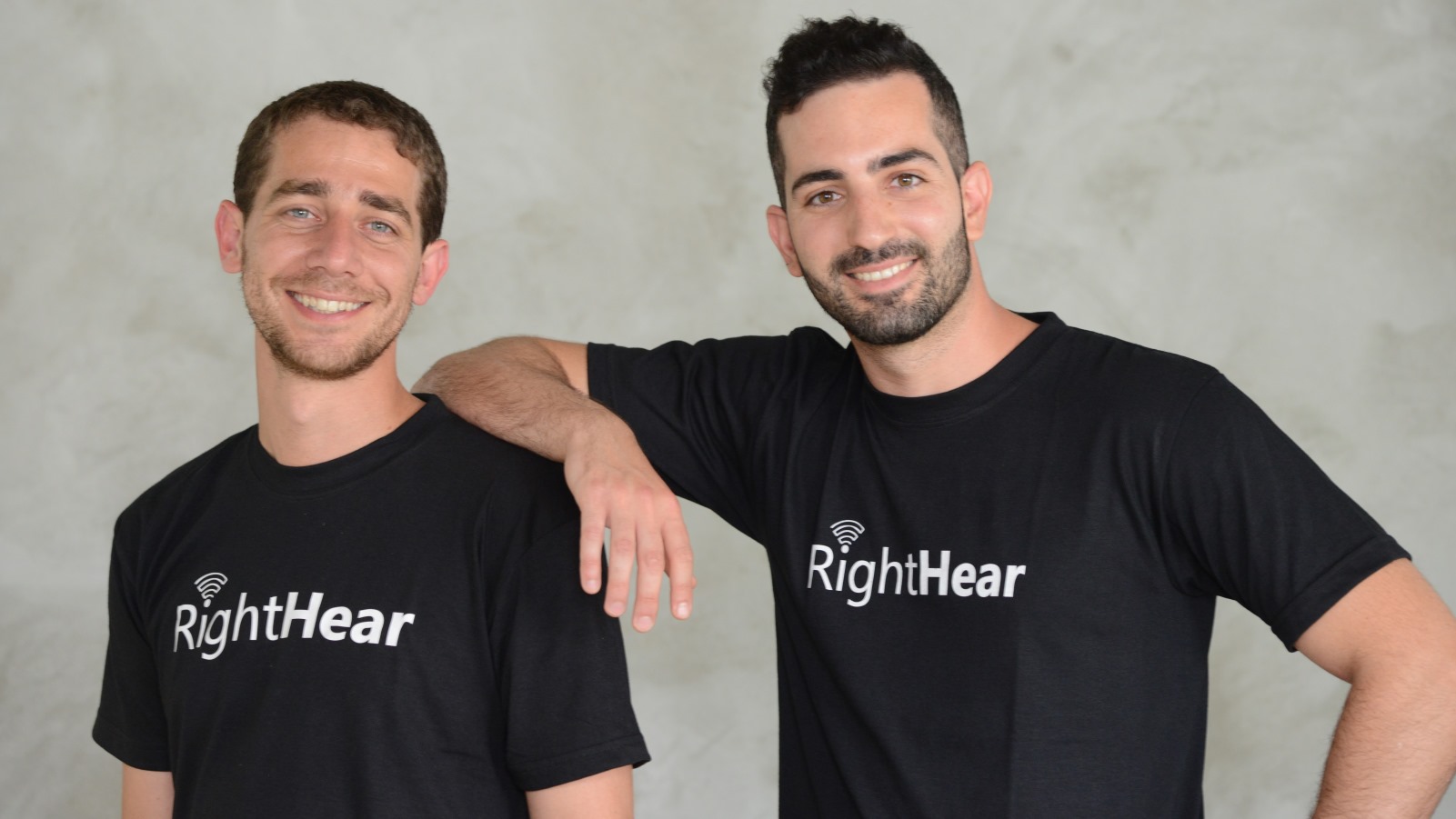
In the last two years, though, not only did RightHear develop a product, but it has made some 200 venues accessible. RightHear charges the venues a fee based on the number of access spots deployed (they’ve installed about 1,500 so far in Israel and the United States). Moreover, the company is profitable, without taking a dime of outside investment. The app is free for users.
Here’s how it works: RightHear mimics the function of a venue’s directory board, whether that’s a sign reading “Macy’s this way, restrooms that way” in a mall, or orienting a visitor inside a university’s administration building. Israel’s Open University was RightHear’s first client.
When users with the RightHear app on their phone approach the virtual sign, the app speaks to them about what’s nearby. For example: “The admissions office is 100 feet ahead to the right. Scholarships is 50 feet to the left. Hours are 9:00am to 5:00pm, Monday through Friday.”
You can also point your phone in a particular direction and RightHear will indicate what’s in front of you.
Because RightHear acts like a virtual directory, the company doesn’t have to install iBeacons on every office door or store. “It doesn’t need that level of accuracy,” Meir said. That also keeps the costs for the venue down. “We call it ‘indoor orientation,’ not ‘indoor navigation.’”
The RightHear app also includes a call button so users can get a person on the line quickly, from the mall office or a hotel front desk. And it’s integrated with ride sharing and taxi apps like Gett, Uber and Lyft. The driver receives a note prior to pick-up indicating that he or she should look for the passenger rather than waiting for a visually impaired passenger to identify the vehicle.
Meir and Elgrably also developed an interface to make it easy for venues to input and update their data, although most venues have paid RightHear to do it for them.

Right-Hear is still small, with a staff of five. Until earlier this year, they were operating out of Hubanana, a coworking space in Ra’anana founded by Meir.
To date, 90 percent of the venues RightHear has made accessible are in Israel. The goal for 2017 is to expand further into the US. They received a boost when they provided accessibility at this year’s M-Enabling Summit in Washington, DC, a conference covering technology innovations aimed at seniors and persons with disabilities.
RightHear may have started by thinking about malls, but really any type of public venue can be made accessible, including museums and sports stadiums.
In Israel, RightHear has relationships with mall operators such as the Azrieli Group, schools including the Weizmann Institute and Tel Aviv University, Assuta hospitals and the Globus cinema chain.
Meir is already thinking of uses for the RightHear system beyond the blind and visually impaired community. “Because this is basically a text-to-speech engine, we can translate the data into other languages,” he explains.
Imagine visiting an airport or hotel in Spain but you don’t speak Spanish. Just fire up the RightHear app and you’ll understand everything right here, right now.




